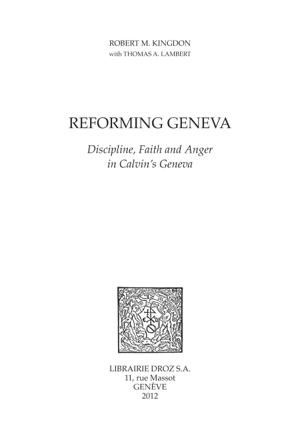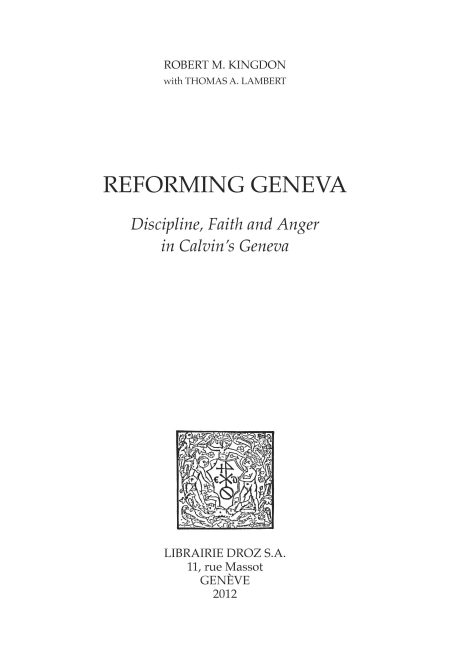
- Retrait gratuit dans votre magasin Club
- 7.000.000 titres dans notre catalogue
- Payer en toute sécurité
- Toujours un magasin près de chez vous
- Retrait gratuit dans votre magasin Club
- 7.000.0000 titres dans notre catalogue
- Payer en toute sécurité
- Toujours un magasin près de chez vous
Reforming Geneva : Discipline, Faith and Anger in Calvin's Geneva EBOOK
Discipline, Faith and Anger in Calvin's Geneva
Robert M. Kingdon, Thomas A. LambertDescription
The Calvinist Reformation is characterized above all by a focus on church discipline enforced by church courts known as consistories. The Geneva consistory served as the model and mother institution throughout the Calvinist world. In this book, Robert M. Kingdon surveys the theoretical underpinnings of the Calvinist emphasis on discipline and how theory was put into practice by John Calvin in Reformation Geneva. Professor Kingdon looks in turn at how the Geneva consistory and the pastors and councilors who staffed it reformed religious practice, religious education and marriage practices. Finally, Robert M. Kingdon uses the emotion of hatred as a lens to examine how Calvin and his colleagues attempted to reform emotions. He delves into the way in which Calvin and his colleagues employed the consistory to attenuate interpersonal hatred, while employing propaganda to whip up interconfessional hatred.
Spécifications
Parties prenantes
- Auteur(s) :
- Editeur:
Contenu
- Nombre de pages :
- 176
- Langue:
- Anglais
Caractéristiques
- EAN:
- 9782600315845
- Date de parution :
- 31-12-11
- Format:
- Ebook
- Protection digitale:
- Digital watermarking
- Format numérique:
- ePub

Les avis
Nous publions uniquement les avis qui respectent les conditions requises. Consultez nos conditions pour les avis.






